The Villain Tri-Fecta: Part One -- Villains Are People Too
Memorable, compelling characters -- that's what good fiction boils down to. And while I have spent uncountable hours analyzing, developing and refining all my main characters, I constantly find myself shying away from digging too deeply into my villains.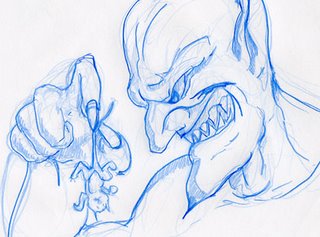 Honestly, they creep me out. I don't like thinking like them. Don't like seeing the world the way they do. Don't like the way their emotions seep into mine.
Honestly, they creep me out. I don't like thinking like them. Don't like seeing the world the way they do. Don't like the way their emotions seep into mine.
But if you want to develop memorable, compelling villains, that's what needs to be done.
Let's see Mike Rowe from Discovery Channel's show Dirties Jobs take that one on. Definitely dirty work.
We all understand how facing conflict builds character. But with the hero/heroine, we're building positive character -- taking the flawed to the realized, the wounded to the healed through each character's arc, an arc designed to fit each unique character's personal issue(s).
A villain, on the other hand, may learn through conflict and hardship, but he inevitably learns the wrong lesson.
Whether our characters are traversing the path of a positive or negative arc -- they're all real people. The villain was an innocent child at one point in his life. What changed? Why did it change? And most importantly, most revealing...how did he change in reaction to those events?
To paraphrase from a piece of E's last post...the challenges people face throughout life and how they respond to them shape the internal landscapes of each of us--in both good and bad ways.
Which means your villain has both good and bad qualities.
No one is bad all the time. Villains need positive traits, too. Traits that make him sympathetic to the reader. Traits that allow the reader to empathize, maybe even identify with the villain in a small way. Understand how he became what he had become.
Note: A compelling villain will often use his positive traits in organically negative ways. More on this next lecture: Your Villain in Conflict.
For the sake of example, let's say your villain's father was oppressive.
That one element could create a variety of negative issues for your villain:
- Maybe...the lack of all control made him crave it once he broke out on his own
- Maybe...he developed a hatred of certain types of men
- Maybe...he developed a hatred for women who allow men to dominate...or maybe he developed a preference for passive women...or maybe he prefers the dominatrix
- Maybe...he developed a hatred for women who allow their children to be mentally abused
- Maybe...he developed a fetish, something that gave him pleasure or allowed him to escape the domination
- Maybe...he mirrored his father's negative trait with his peers--became a bully, a gang leader...or maybe the opposite. Maybe he feared control and became a follower (note: this isn't a strong villainous trait, but might be a tendency he has, which would create great inner conflict. More about that next lecture: Your Villain in Conflict.)
To illustrate how the same situation could produce positive qualities depending on the person, let's take the examples above and turn them around.
The same villain, the same oppressive father. How did that affect your villain in a positive way?
- Maybe...the lack of control made him empathetic to others who lack control
- Maybe...he learned the right and wrong way to wield control
- Maybe...he learned to empathize with women who'd been in a controlling relationship
- Maybe...that fetish he developed was writing about controlling fathers who always die a horrible death. (We all know writing is a fetish. :-)).
Your villain's unique personality -- why will your readers remember him?
Like all characters, your villain's distinctive qualities should evolve organically. In other words, his uniqueness should stem from the way he reacted and internalized lifetime events (as shown above.)
There are as many reactions to a particular hardship as there are people on earth. It's the black sheep concept.
We all know or have heard of a family--same parents, same home, same school, equal treatment--where two of the kids turn out successful, compassionate, well-adjusted, and one who turns out a repeat failure, selfish, a social reject. Or two kids who follow in the family's traditions and beliefs, the other who's turned away from them.
Every living person is unique--thoughts, behaviors, preferences, dispositions, wants, dreams.
Apply that concept to your villain and watch him puff from a cardboard cutout into a living, breathing bad guy.
I'd like to hear how you all develop your villains. What do you think makes a villain unique? Memorable? Formidable?
Next week: Your Villain in Conflict.


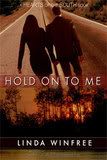
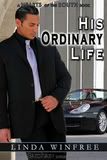
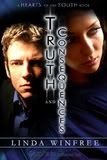
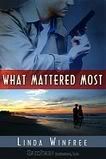

1Comments:
Joan,
You hit all the points I'd make. I think the key though is not being afraid to sink deep into the bad guy's mind--if you back away, the character loses integrity and the chances of him becoming weaker than the hero/heroine, or even a card board cut out increases dramatically. If the villian is to increase tension and present a threat to the hero/heroine he needs to be as well developed as they are. He needs to become real to the reader.
In my opinion, the one thing you didn't mention--but that I think is crucial when crafting villians--is to do your research.
Generally speaking, most of the time the villian is going to have some type of psychological disorder. IMHO-- its as important to research your villian's psychological disorder, as it is to research your hero/heroine's jobs.
There are all sorts of psychological disorders. And all of them can really screw with the human mind. Most villians fall into one or another of these conditions. IMO, this is where you can take the characterization of a villian to a whole new level.
Most psychological conditions have certain symptoms that you can explore. Researching the lesser know facts behind the psychological disorder can give you some great building blocks to craft a unique/multi-dimenstional villian. Weaving these symptoms, or personality traits into your character will make him increasingly real to the reader.
And once he's real to the reader, chances are they will never forget him.
Post a Comment
<< Home